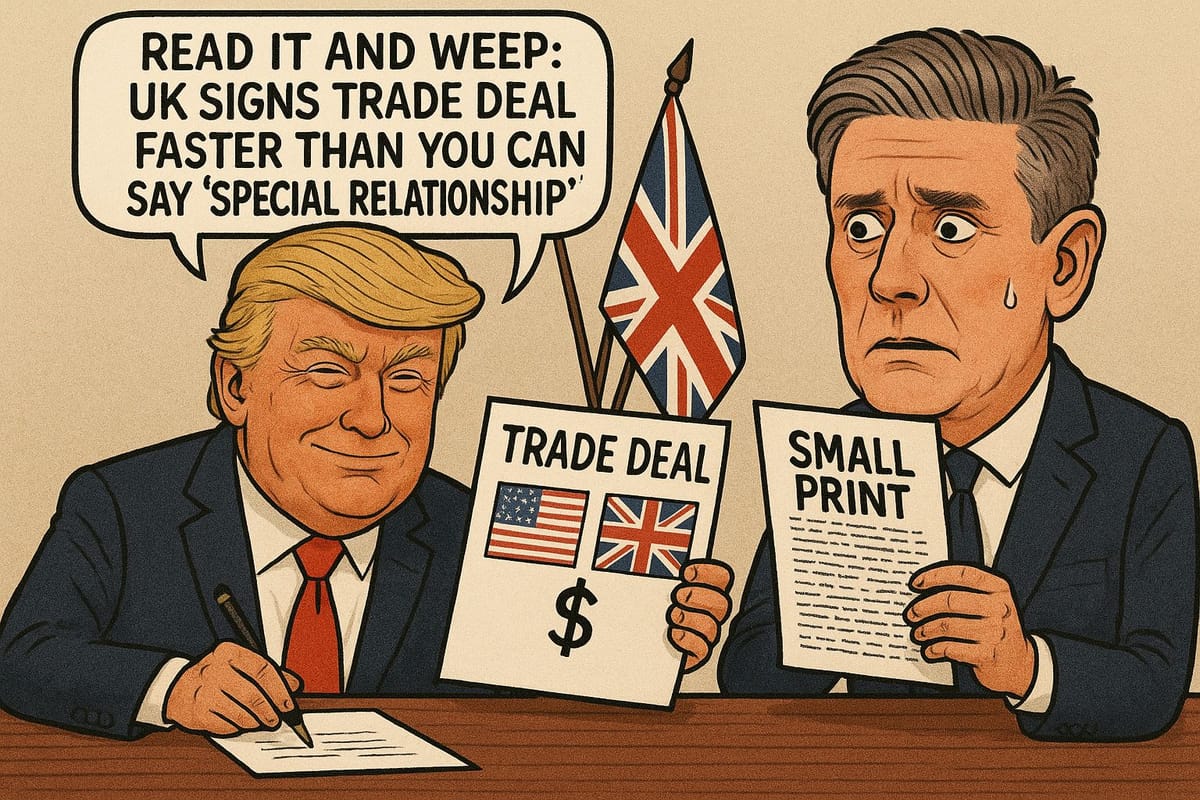
By Your Friendly Neighborhood Trade Correspondent, Probably on Tea Break
In a dazzling display of international diplomacy—or perhaps just diplomatic dazzle—the United States and the United Kingdom have signed a shiny new trade deal. Or, at least, the United States says they did. UK officials are still flipping through the pages, squinting at the small print and wondering if "Article 5.3(b): All Your Cheddar Belongs to Us" is legally binding.
According to the US government, the deal was "done and dusted" before the UK Prime Minister even finished his second scone. The ink wasn’t just wet—it was practically still in the pen. One unnamed source from 10 Downing Street was overheard saying, “We signed what now?”
But why the rush? Why did President Donald Trump, now in his second term and seemingly still allergic to commas, prioritize a trade deal with the UK over, say, countries that have slightly fewer pubs per capita? The answer lies in something Trump appreciates more than golf and gold-plated escalators: a trade surplus. Last year, the US exported nearly $80 billion worth of goods to the UK and imported only $68 billion. That’s a juicy $12 billion trade surplus. In other words, America made money. Big money. The kind of money that makes a spreadsheet blush.
So from a US perspective, this deal was a no-brainer. “We win, they win, but mostly we win,” Trump reportedly said while autographing a Big Mac with a Sharpie.
Why It’s Technically Good for Both Sides
For the US:
Continued access to British markets for everything from iPhones to corn syrup.
The joy of watching the King nod diplomatically while being offered another Ford pickup.
Proof that, occasionally, international trade can work in your favour without yelling.
And if the US wants to buy Canada, he needs the UK's permission :)
For the UK:
A shiny, post-Brexit success story to wave about like a Union Jack at a Last Night of the Proms.
Continued access to American goods, including Netflix originals, Oreos, and those weirdly large refrigerators.
A reminder that you can sign trade deals faster than a pub closes at 11 PM—whether or not you've read them.
Of course, the deal still needs to be parsed, approved, and possibly sent back with polite red ink scribbles like “Is this legal?” and “Does this clause say we own Florida?”
But for now, both nations are celebrating. The US gets to flex its surplus, and the UK gets to say, “At least we’re not trading on WTO terms with literally everyone.”
One British official summed it up best:
“It may be a mystery box, but it’s our mystery box.”
By Nicolas Jeffery: CEO / Co-Founder Impresario Partners Inc.
TAGS: #Trade Deal , #US UK Relations ,#Economic Diplomacy ,#Brexit Trade, #Trump Era Policy, #International Business



